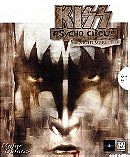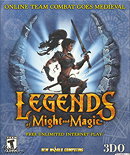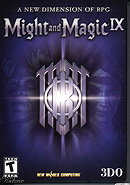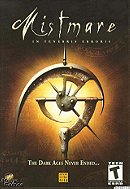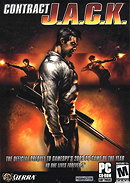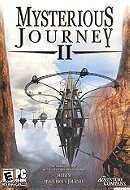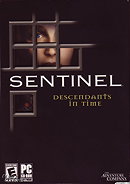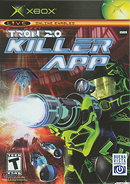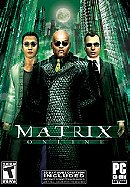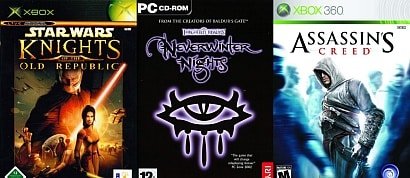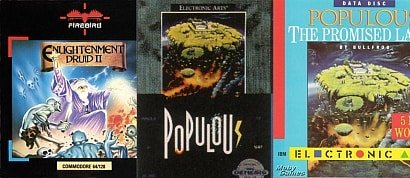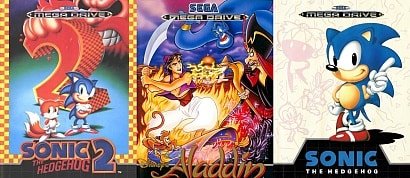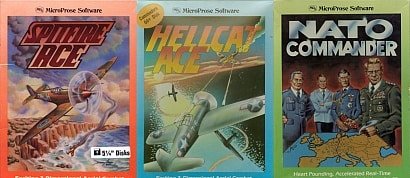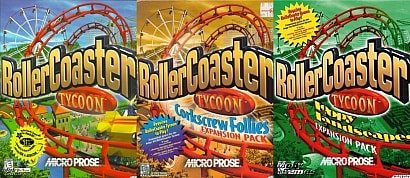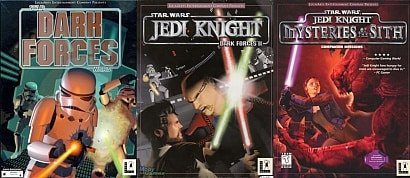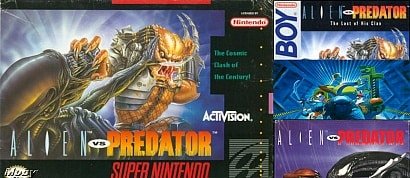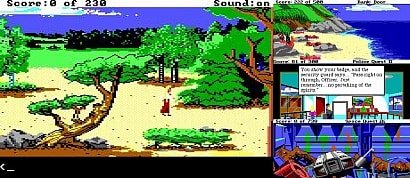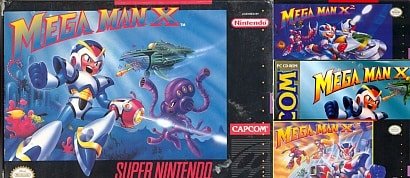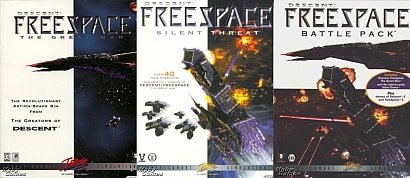Powered by Lithtech
Sort by:
Showing 40 items
Rating:
List Type:
The Operative: No One Lives Forever - PC Games
Although KISS: Psycho Circus got to market first, this Monolith production is the game that first showed everyone what Lithtech engine is capable of.
List-All's rating:


After the failed development of Lithtech 3.0, this was the first game to show off the new Lithtech Jupiter engine.
List-All's rating:


F.E.A.R.: First Encounter Assault Recon - PC Games
Powered by Lithtech Jupiter Extended (Jupiter Ex)
List-All's rating:


Lithtech is a game engine which was initially developed by Monolith Productions in collaboration with Microsoft. Monolith later formed a separate company, LithTech Inc., to deal with further advancements of the engine technology.
A number of different video game developers, including Monolith itself, has been using Lithtech to power their first-person shooter games, thus contributing to the success of the engine, establishing it as an alternative to other products, such as the Quake and Unreal engines. The Lithtech engine is continually being developed, and its latest incarnation has been codenamed Jupiter Extended or Jupiter EX for short.
Development History:
Originally, it was supposed to be called 'DirectEngine' as Monolith was developing it for Microsoft to be used in their DirectX technology, but that deal was canceled. Monolith decided to continue developing the engine, and release the first licensed game engine as Lithtech 1.0
Lithtech 1.0 did not compare well with its competitors, the Quake and Unreal engines, lacking advanced graphical features. It was however praised for its ease of programming, as it was originally conceived to simply coding for 3D DirectX games.
The engine really took off with Lithtech 2.0 which was found in the hit FPS shooter 'No One Lives Forever', and monolith kept improving the engine trough point releases, upgrading the engine in NOLF through game patches.
For the game Aliens versus Predator 2, Monolith used a special modified Lithtech 2.2 engine called 'Talon' which added many improvements to facial animations, vehicle support, and one of the best multiplayer supports back in that time. The engine could finally compete directly with the features of Unreal engine. Prior to 'Talon', Lithtech was known as the 'poor man's engine' only to be used if you couldn't afford licensing costs for Quake or Unreal.
Lithtech 3.0 was being developed at the same tile as the Talon 2.2 engine, but the version was plagued by bugs and problems and no games were ever finished with it, with most being ported to 'Talon' or to the next generation 'Jupiter' engine. This engine was only seen in a demonstration of the (now vaporware) Shogo II.
One version of Lithtech 3.0 was a variant called 'Lithtech Discovery', which included enhancements to allow MMORPG capabilities, but it was only developed into one game - 'The Matrix Online'.
Lithtech Jupiter was developed as an alternative to the failed 3.0 engine, but rather than a branch, it was almost a completely overhauled. In some ways, it was even more advanced than Unreal as it supported Shader Model 1.x and other high end features, but one thing it lacked was the MMORPG code from the 3.x series and at its launch, its multiplayer support was very poor.
A custom version of 'Jupiter' called 'Lithtech Triton' was developed for the game Tron 2.0, which improved the multiplayer aspects of the engine. These enhancements later made their way back into an improved Jupiter version for other game developers.
In 2005, the latest version of the engine is called 'Jupiter Extended' or 'Jupiter Ex' for short, and was featured in the popular Monolith-developed games F.E.A.R. and Condemned: Criminal Origins. Jupiter Ex is driven by an all new DirectX 9 renderer and includes many enhancements such as the Havok physics engine. It also includes all of the latest 3D engine features such as normal mapping, parallax mapping, vertex/pixel and high-level shaders, volumetric lighting and lightmapping, and per-pixel lighting model.
A number of different video game developers, including Monolith itself, has been using Lithtech to power their first-person shooter games, thus contributing to the success of the engine, establishing it as an alternative to other products, such as the Quake and Unreal engines. The Lithtech engine is continually being developed, and its latest incarnation has been codenamed Jupiter Extended or Jupiter EX for short.
Development History:
Originally, it was supposed to be called 'DirectEngine' as Monolith was developing it for Microsoft to be used in their DirectX technology, but that deal was canceled. Monolith decided to continue developing the engine, and release the first licensed game engine as Lithtech 1.0
Lithtech 1.0 did not compare well with its competitors, the Quake and Unreal engines, lacking advanced graphical features. It was however praised for its ease of programming, as it was originally conceived to simply coding for 3D DirectX games.
The engine really took off with Lithtech 2.0 which was found in the hit FPS shooter 'No One Lives Forever', and monolith kept improving the engine trough point releases, upgrading the engine in NOLF through game patches.
For the game Aliens versus Predator 2, Monolith used a special modified Lithtech 2.2 engine called 'Talon' which added many improvements to facial animations, vehicle support, and one of the best multiplayer supports back in that time. The engine could finally compete directly with the features of Unreal engine. Prior to 'Talon', Lithtech was known as the 'poor man's engine' only to be used if you couldn't afford licensing costs for Quake or Unreal.
Lithtech 3.0 was being developed at the same tile as the Talon 2.2 engine, but the version was plagued by bugs and problems and no games were ever finished with it, with most being ported to 'Talon' or to the next generation 'Jupiter' engine. This engine was only seen in a demonstration of the (now vaporware) Shogo II.
One version of Lithtech 3.0 was a variant called 'Lithtech Discovery', which included enhancements to allow MMORPG capabilities, but it was only developed into one game - 'The Matrix Online'.
Lithtech Jupiter was developed as an alternative to the failed 3.0 engine, but rather than a branch, it was almost a completely overhauled. In some ways, it was even more advanced than Unreal as it supported Shader Model 1.x and other high end features, but one thing it lacked was the MMORPG code from the 3.x series and at its launch, its multiplayer support was very poor.
A custom version of 'Jupiter' called 'Lithtech Triton' was developed for the game Tron 2.0, which improved the multiplayer aspects of the engine. These enhancements later made their way back into an improved Jupiter version for other game developers.
In 2005, the latest version of the engine is called 'Jupiter Extended' or 'Jupiter Ex' for short, and was featured in the popular Monolith-developed games F.E.A.R. and Condemned: Criminal Origins. Jupiter Ex is driven by an all new DirectX 9 renderer and includes many enhancements such as the Havok physics engine. It also includes all of the latest 3D engine features such as normal mapping, parallax mapping, vertex/pixel and high-level shaders, volumetric lighting and lightmapping, and per-pixel lighting model.
Early Gaming Scripting Tools
Sierra's AGI script language
* Powered by AGI
Sierra's early SCI versions
* Powered by SCI0/SCI1
Sierra's later SCI versions
* Powered by SCI1.1/SCI2/SCI3
LucasArts' SCUMM engine (all versions)
* Powered by SCUMM
Revolution's Virtual Theatre engine
* Powered by Virtual Theatre
Modern 3D Gaming Engines
Valve's Source engine (all versions)
* Powered by Source
Epic's UnrealEngine1 (1.0 & 1.5)
* Powered by Unreal1
Epic's UnrealEngine2 (2.0, 2.5, 2X)
* Powered by Unreal2
Epic's UnrealEngine3
* Powered by Unreal3
Added to
People who voted for this also voted for
Classics HD on PS3
Games Developed in Canada
The Works of Peter Molyneux
Sega Mega Drive Bestsellers
The Works of Sid Meier
My Favorite Developers
Ratchet & Clank series
RollerCoaster Tycoon series
Final Fantasy
Games Developed in Germany
Movie Stingers
Star Wars: Dark Forces Series
Square Enix Games (The Listal Collection)
My favorite Games on other Systems
My trips to the theatre
More lists from List-All
Aliens vs Predator series
Powered by UnrealEngine3
Powered by SCI0/SCI1
Silent Hill series
Mega Man X series
Halo series
Freespace series
 Login
Login

 43
43
 6.5
6.5
 0
0

